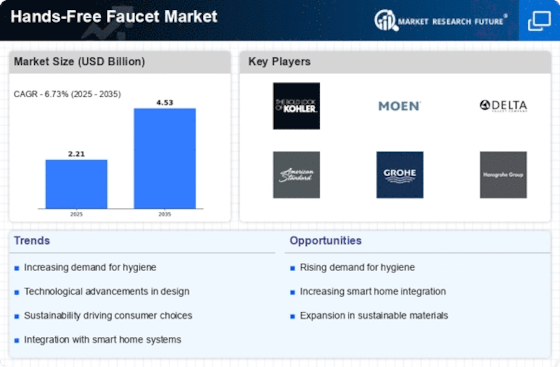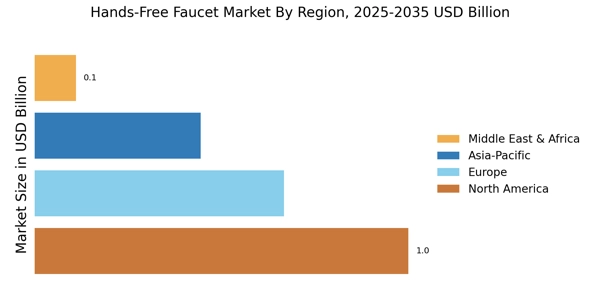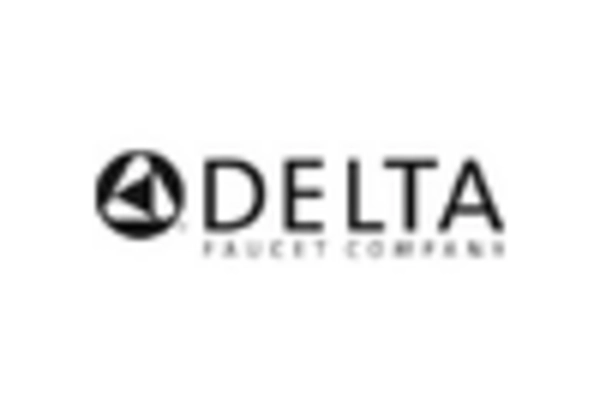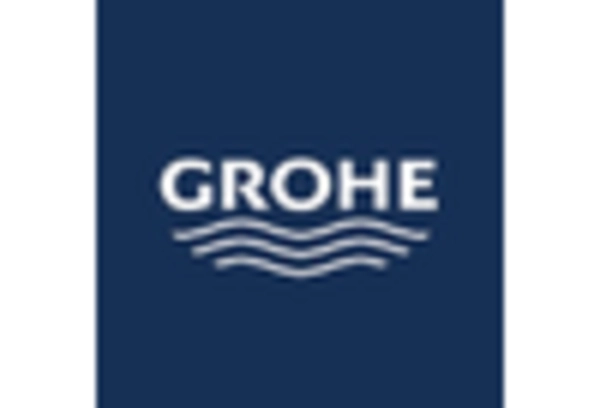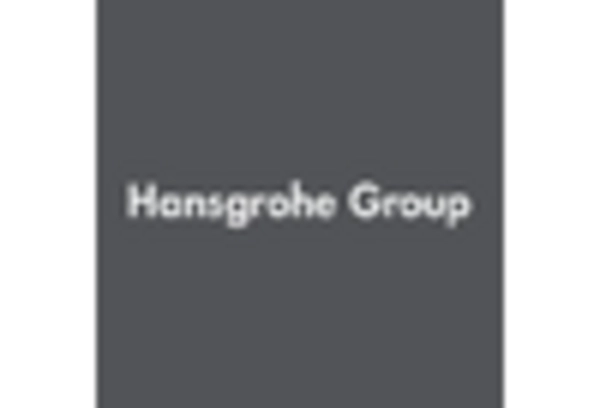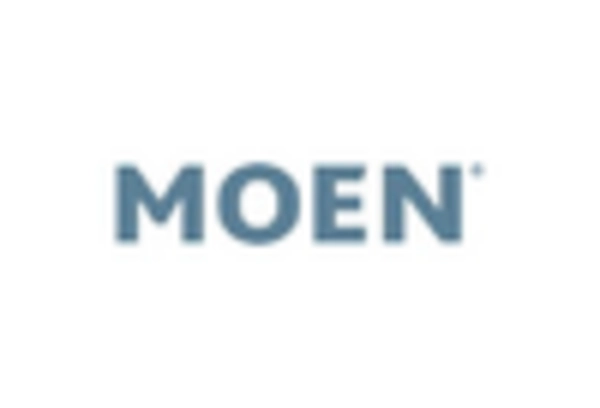Increased Focus on Hygiene and Sanitation
The rising awareness regarding hygiene and sanitation is a pivotal driver for the Hands-Free faucet Market. Consumers are increasingly prioritizing cleanliness, particularly in public spaces such as restaurants, hospitals, and schools. This trend is reflected in the market data, which indicates a notable increase in the adoption of hands-free faucets in these environments. The hands-free operation minimizes contact with surfaces, thereby reducing the risk of germ transmission. As a result, manufacturers are innovating to meet this demand, leading to a surge in product offerings that emphasize touchless technology. The hands-free faucet solutions are not only appealing to health-conscious consumers but also align with regulatory standards aimed at improving public health. This heightened focus on hygiene is likely to sustain growth in the Hands-Free Faucet Market for the foreseeable future.
Technological Advancements in Faucet Design
Technological advancements play a crucial role in shaping the Hands-Free Faucet Market. Innovations such as infrared sensors, motion detection, and smart connectivity are enhancing user experience and functionality. The integration of these technologies allows for seamless operation, which is particularly appealing in both residential and commercial settings. Market data suggests that the demand for smart faucets, which can be controlled via mobile applications, is on the rise. This trend indicates a shift towards more sophisticated and user-friendly designs that cater to tech-savvy consumers. Furthermore, manufacturers are investing in research and development to create faucets that not only conserve water but also offer customizable features. As technology continues to evolve, the Hands-Free Faucet Market is expected to witness significant growth driven by these advancements.
Sustainability and Water Conservation Initiatives
Sustainability is becoming increasingly important in the Hands-Free Faucet Market. With growing concerns about water scarcity and environmental impact, consumers and businesses are seeking solutions that promote water conservation. Hands-free faucets are designed to reduce water wastage by automatically shutting off when not in use, which aligns with global sustainability goals. Market data indicates that products emphasizing eco-friendly features are gaining traction among environmentally conscious consumers. Additionally, regulatory bodies are encouraging the adoption of water-efficient fixtures, further propelling the demand for hands-free faucets. Manufacturers are responding by developing products that not only meet these standards but also appeal to a market that values sustainability. This focus on eco-friendliness is likely to drive growth in the Hands-Free Faucet Market as consumers increasingly prioritize sustainable living.
Rising Urbanization and Infrastructure Development
The trend of rising urbanization is a significant driver for the Hands-Free Faucet Market. As urban areas expand, there is an increasing need for modern infrastructure that includes advanced sanitation solutions. Hands-free faucets are becoming a standard feature in newly constructed buildings, including residential complexes, commercial establishments, and public facilities. Market data shows that urban centers are investing heavily in upgrading their plumbing systems to incorporate touchless technology, which is perceived as a modern and hygienic solution. This shift is not only enhancing the overall aesthetic of urban environments but also improving public health outcomes. As urbanization continues to accelerate, the demand for hands-free faucets is expected to grow, positioning the Hands-Free Faucet Market for sustained expansion.
Consumer Preference for Convenience and Ease of Use
Consumer preference for convenience is a driving force in the Hands-Free Faucet Market. Modern consumers are increasingly seeking products that simplify daily tasks and enhance their lifestyle. Hands-free faucets offer a level of convenience that traditional faucets cannot match, as they eliminate the need for manual operation. This ease of use is particularly appealing in busy households and commercial settings where efficiency is paramount. Market data suggests that the demand for user-friendly products is on the rise, with hands-free faucets being favored for their ability to streamline the handwashing process. Additionally, the growing trend of smart homes is further propelling the adoption of touchless faucets, as they integrate seamlessly with other smart devices. This consumer inclination towards convenience is likely to continue driving growth in the Hands-Free Faucet Market.


